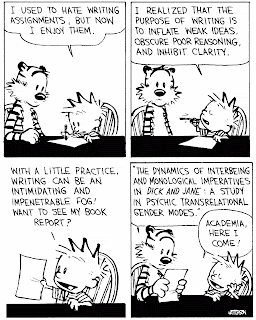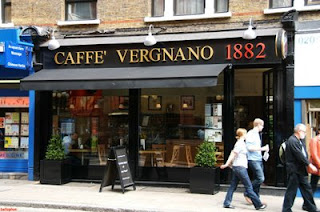A few days ago I started a sponsored fundraiser. Where some may run marathons or climb mountains for charity, I decided to do my dissertation. I am hoping people will support this challenge and give me cash. The cash will go to a good cause, of which I have picked out two. The first is Oxfam, a very well known NGO that strives to end global poverty and injustice. The second is not an organisation of this sort, and lacks the promotional material to summarise in the way Oxfam allows. It 'supports' the Zapatista Army of National Liberation in Mexico, which fights (largely nonviolently) for a different mode of production and governance from the capitalist one endorsed by the Mexican State.
Where money can be raised quite simply and passed on to Oxfam, this is not the case for the Zapatistas. I cannot use JustGiving.com to support the Zapatistas as they are not a charity. So I tried to figure out a way of financially supporting them by other means, and realised that purchasing coffee from the co-operative coffee producers in Chiapas, the state run autonomously by the Zapatistas, would be the best means. To use a platform similar to JustGiving.com (instead of asking people to pay me direct) gives the two causes an equal presence on the internet, and a certain legitimacy- PayPal is used for both, for example.
Purchasing coffee gives a new emphasis on the support that differentiates it from the Oxfam cause. It brings up issues such as 'Trade or Aid?' and the nature of the involvement of NGOs. If both causes are working towards 'change', then do we advocate change from the bottom up or the top down? Do we trust the type of change that these two organisations are attempting to provide? Do we have adequate ideas about the organisations' respective histories and the histories of the lands in which they are operating?
Then there is the websites I am using to do this stuff. JustGiving.com is pretty simple to use, and has good connectivity to things like Facebook and Twitter, and it's easy to publish my page on there. I can also do JustTextGiving with Vodafone which asks people in my phone book for donations. It works like this...
It's simple: you share your JustTextGiving code, your sponsor sends a text message from their mobile phone, and you see their donation and message on your fundraising page.
I haven't done that (yet) so I can't report on how simple or effective (or irritating for people) it might turn out to be.
 The Zapatista cause uses a 'crowdfunding' website which is simply a space for people to promote something that needs funding. I tried numerous sites but came up against a need to make a promotional video (which I don't have the time and resources to do) or having the money in dollars which might put people off. I have ended up with GoFundMe.com which unfortuately has a £5 limit for the smallest donation (compared to any price for JustGiving). JustGiving also use Gift Aid which, because of Taxation laws, adds extra to the donation, so a 50p donation is worth 63p.
The Zapatista cause uses a 'crowdfunding' website which is simply a space for people to promote something that needs funding. I tried numerous sites but came up against a need to make a promotional video (which I don't have the time and resources to do) or having the money in dollars which might put people off. I have ended up with GoFundMe.com which unfortuately has a £5 limit for the smallest donation (compared to any price for JustGiving). JustGiving also use Gift Aid which, because of Taxation laws, adds extra to the donation, so a 50p donation is worth 63p.To promote my GoFundMe page on Facebook would mean that I would have to use an 'App' that would receive certain details from Facebook. These are: My basic info, my email address, my photos, my videos, and photos shared with me. I have not (yet) consented to this, meaning that I have not promoted the Zapatista cause on Facebook in this way. With Twitter, on the other hand, a 'tweet' is simply done no problem, no info exchanged.
Twitter allows me to reach other people with similar interests, using the # system. On Facebook, I had to create a page to explain what I am doing. This page has numerous restrictions. It works with the 'Timeline' model and thus straddles the posts I make down the page, meaning that the important info that I want to convey is stuck in the (fairly hidden away) 'About' section, or gets pushed down the page as I update it. My sense is that it appears confusing and doesn't invite a huge amount of interaction apart from 'liking' the page itself. Thus, where I have had only one donation (excluding my own), I have seven 'likes.' I wanted to upload a 'cover photo' to this page to tell people to click on 'about' but was told that this would go against the Facebook rules of a cover photo, which cannot be primarily text-based or contain...
- Price or purchase information, such as "40% off" or "Download it at our website"
- Contact information, such as web address, email, mailing address or other information intended for your Page's About section
- References to user interface elements, such as Like or Share, or any other Facebook site features
- Calls to action, such as "Get it now" or "Tell your friends"
Viva Zapatista, all power to co-ops and communes!
So, with £35 in the bank for the coffee co-ops of Chiapas, Mexico, and £2 in the bank for Oxfam, the journey continues.
To support the coffee producers in Chiapas and by extension the Zapatista anti-capitalist struggle, go here: http://www.gofundme.com/otpss
To support Oxfam and their struggle against poverty and injustice; for food aid, irrigation and schools for the world's poor, go here: http://www.justgiving.com/Adam-Hutchings
For the Facebook page, see: http://www.facebook.com/DissertationChallenge
My twitter is
Thanks!






